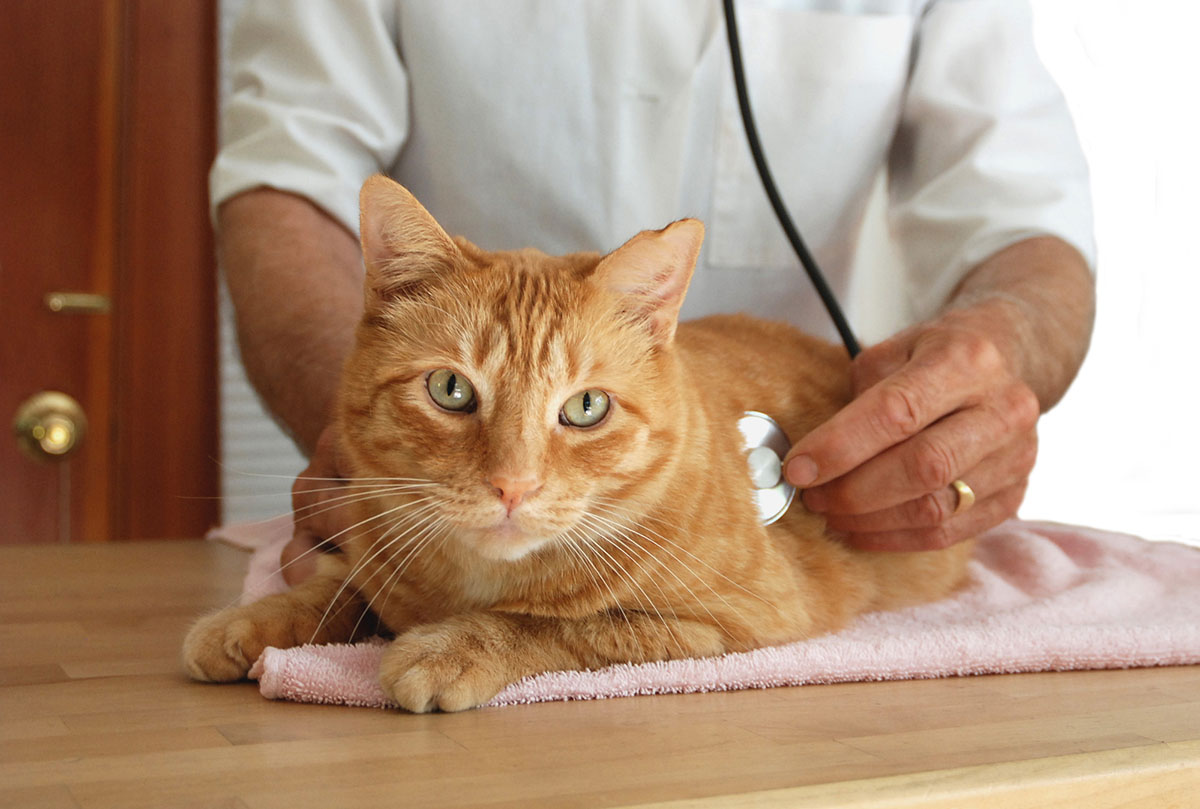Project Description
Cat’s Can catch a Cold
Yes, your cat can catch a cold. There are several conditions that cause cats to sneeze with cold like symptoms. However, sneezing that lasts more than two days is probably due to a viral upper respiratory infection (URI) similar to a “cold” that we may have. The “upper” part of the name means that the infection is limited to the nose, throat, trachea, and eyes. Lower respiratory infections occur in the lungs but are quite uncommon in cats. There are six known viruses that cause feline  URI’s. Two of these cause severe infections resulting in loss of appetite, high fever, and ulcers of the tongue and cornea. These viruses are the feline rhinotracheitis virus, also called the feline herpesvirus, and the feline calicivirus. The other viruses cause mild sneezing for a few days, but are rarely a serious problem. Even the mild infections can become life-threatening if bacteria also infect the nose, oral cavity, or eyes. Cats so affected may also lose their appetites, the single most serious complication. Once this occurs, the cat will become malnourished and dehydrated. If not corrected soon, cats can die. Our first decision in treatment is where it is best to treat the cat. If the cat is eating, our preference is to treat it at home. However, if there are other cats at home that are not infected, it may be best to treat it in the hospital to protect the healthy cats. These viruses are very contagious and are spread by sneezing. If the cat is not eating, hospitalization is preferred so that proper antibiotics and nutrition may be administered. If this is done quickly, all but a very few cats will recover completely. If your cat is being treated at home and stops eating, it should be hospitalized for more intense treatment. Prevention is usually possible for the two severe viruses by vaccination. Because immunity from vaccination only lasts about 12-18 months, annual vaccinations are necessary. Even indoor-only cats should be vaccinated since the viruses are air borne. Many cats that have infections due to the rhinotracheitis virus or the calicivirus will become carriers. These cats are usually well, but they may develop sneezing and become very contagious when put under stress. If you notice your cat showing any of the symptoms listed above, let us know so that we can get your cat under treatment right away. Remember, in most cases feline upper respiratory infection (URI) is not difficult to remedy; but the key, as with so many medical conditions, is early diagnosis and treatment.
URI’s. Two of these cause severe infections resulting in loss of appetite, high fever, and ulcers of the tongue and cornea. These viruses are the feline rhinotracheitis virus, also called the feline herpesvirus, and the feline calicivirus. The other viruses cause mild sneezing for a few days, but are rarely a serious problem. Even the mild infections can become life-threatening if bacteria also infect the nose, oral cavity, or eyes. Cats so affected may also lose their appetites, the single most serious complication. Once this occurs, the cat will become malnourished and dehydrated. If not corrected soon, cats can die. Our first decision in treatment is where it is best to treat the cat. If the cat is eating, our preference is to treat it at home. However, if there are other cats at home that are not infected, it may be best to treat it in the hospital to protect the healthy cats. These viruses are very contagious and are spread by sneezing. If the cat is not eating, hospitalization is preferred so that proper antibiotics and nutrition may be administered. If this is done quickly, all but a very few cats will recover completely. If your cat is being treated at home and stops eating, it should be hospitalized for more intense treatment. Prevention is usually possible for the two severe viruses by vaccination. Because immunity from vaccination only lasts about 12-18 months, annual vaccinations are necessary. Even indoor-only cats should be vaccinated since the viruses are air borne. Many cats that have infections due to the rhinotracheitis virus or the calicivirus will become carriers. These cats are usually well, but they may develop sneezing and become very contagious when put under stress. If you notice your cat showing any of the symptoms listed above, let us know so that we can get your cat under treatment right away. Remember, in most cases feline upper respiratory infection (URI) is not difficult to remedy; but the key, as with so many medical conditions, is early diagnosis and treatment.
